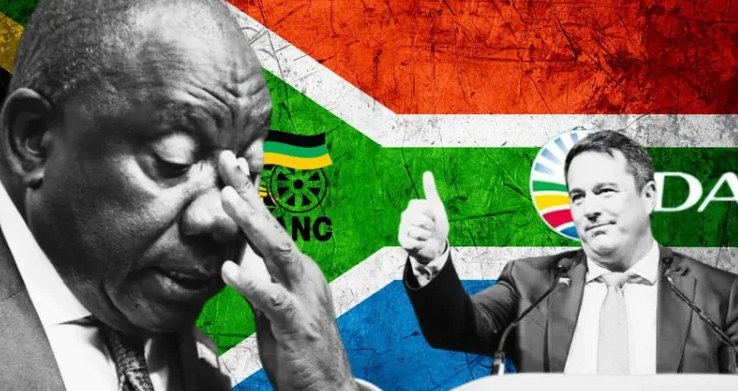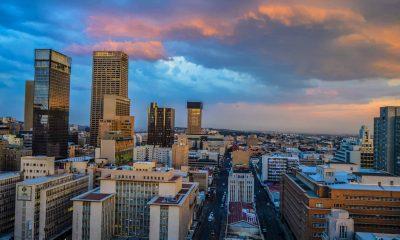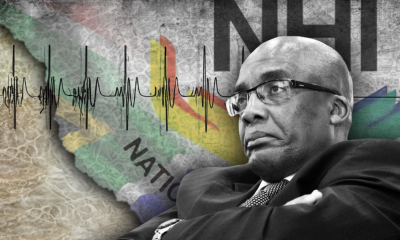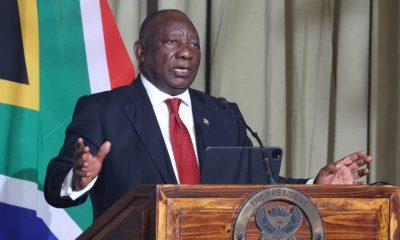Business
DA’s Budget Rejection Sparks Crisis in Ramaphosa’s Government of National Unity

South Africa’s Government of National Unity (GNU) is facing its biggest test yet after the Democratic Alliance (DA) voted against the national budget, throwing its future in the coalition into question.
Markets had been anxiously watching the budget vote on April 2, not just to see if it would pass, but to gauge whether the DA would break ranks with the GNU. The party’s rejection of the budget has sparked speculation that it may exit the coalition, a move that could reshape South Africa’s political landscape.
GNU Tensions Reach Breaking Point
The African National Congress (ANC), which leads the GNU, sees the DA’s move as a betrayal. Leaked audio from an ANC caucus meeting, chaired by President Cyril Ramaphosa, revealed that the party considers voting against the budget as “defining itself outside the GNU.”
Finance Minister Enoch Godongwana made the government’s stance clear:
“I don’t think you can vote against a budget, and tomorrow you want to go and be part of its implementation. It can’t be. You’ve got to draw a line at that point.”
While the ANC has not formally threatened to expel the DA from the GNU, the message is clear—those opposed to the government’s budget should reconsider their place in the coalition.
The DA, however, has accused the ANC of sidestepping coalition agreements and seeking outside support to push the budget through. Instead of engaging GNU partners, the ANC secured backing from ActionSA, a minority party led by former DA members, to pass the budget in Parliament.
Markets React as Investors Fear Instability
The fallout from the budget vote has already shaken investor confidence, with the rand weakening by 1.62%, shedding nearly 30 cents against the dollar.
Investors worry that if the DA quits the GNU, its vacuum could be filled by anti-business parties like the EFF (Economic Freedom Fighters) or former President Jacob Zuma’s MK Party—both of which have signaled willingness to join if the DA and Freedom Front Plus (FF+) leave.
Adding to the uncertainty, the FF+ also voted against the fiscal framework, meaning its position in the GNU is also at risk. If both the DA and FF+ exit, the ANC may have no choice but to invite the EFF and MK Party into the coalition.
DA Threatens Court Action Over Budget Vote
The DA has not officially confirmed whether it will leave the GNU, but it has already promised to challenge the budget’s passage in court.
Party leader John Steenhuisen announced that the DA will take legal action against the budget vote, claiming that parliamentary procedures were not followed correctly.
This legal battle could further strain relations between the coalition partners, making it even harder for them to continue working together.
More Clashes on Key Policies
Beyond the budget dispute, tensions in the GNU have been brewing for months over key legislation introduced by the ANC, including:
-
The National Health Insurance (NHI) Bill, which the DA calls unconstitutional and unaffordable.
-
Education policy changes, which the DA fears will harm Afrikaans-language schools.
-
Land expropriation laws, which the DA opposes due to concerns over property rights and economic stability.
What’s Next for the GNU?
While negotiations are still possible, the DA’s budget vote has set the stage for a potential breakup of the GNU. If the DA leaves, the ANC will need new allies to maintain control of Parliament, which could push South Africa’s politics in a more radical direction.
For now, the political uncertainty remains a major risk factor for the country’s economy, investors, and businesses—and all eyes are on the next move from the DA and Ramaphosa’s government.
{Source BusinessTech}
Follow Joburg ETC on Facebook, Twitter , TikTok and Instagram
For more News in Johannesburg, visit joburgetc.com



























